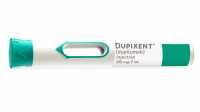Author Interviews, Lipids, Regeneron / 26.08.2020
Homozygous Familial Hypercholesterolemia: FDA Accepts Regeneron’s Monoclonal Antibody Evinacumab for Priority Review
MedicalResearch.com Interview with:
Professor F. J. Raal, FRCP, FCP(SA), Cert Endo, MMED, PhD
Director, Carbohydrate & Lipid Metabolism Research Unit
Professor & Head, Division of Endocrinology & Metabolism,
Faculty of Health Sciences, University of the Witwatersrand
MedicalResearch.com: What is the background for this study?
Response: The objective of this randomized phase 3 study was to evaluate the efficacy and safety of evinacumab in adult patients with homozygous familial hypercholesterolemia (HoFH), a condition that remains very difficult to treat. The primary endpoint was reduction of low-density lipoprotein cholesterol (LDL-C) from baseline with evinacumab compared to placebo at 24 weeks.
MedicalResearch.com: Would you briefly explain what is meant by homozygous familial hypercholesterolemia? How many individuals may be affected by this disorder?
Response: HoFH, or homozygous familial hypercholesterolemia, is the most serious and more rare form of familial hypercholesterolemia (FH). It is estimated that as many as 1 in 300,000 people worldwide and approximately 1,300 people in the U.S. are affected by HoFH. A person who has HoFH has inherited two FH genes, one from each parent. They therefore have LDL-C levels that are elevated 4-fold or greater from birth and are at high risk for premature atherosclerotic disease and cardiac events which can occur in childhood. While current treatment guidelines recommend early and intensive LDL-C lowering, people with HoFH tend to be less responsive (or unresponsive) to standard lipid-lowering therapies, including high-intensity statins and PCSK9 (proprotein convertase subtilisin/kexin type 9) inhibitors and often require lipid apheresis.
(more…)





